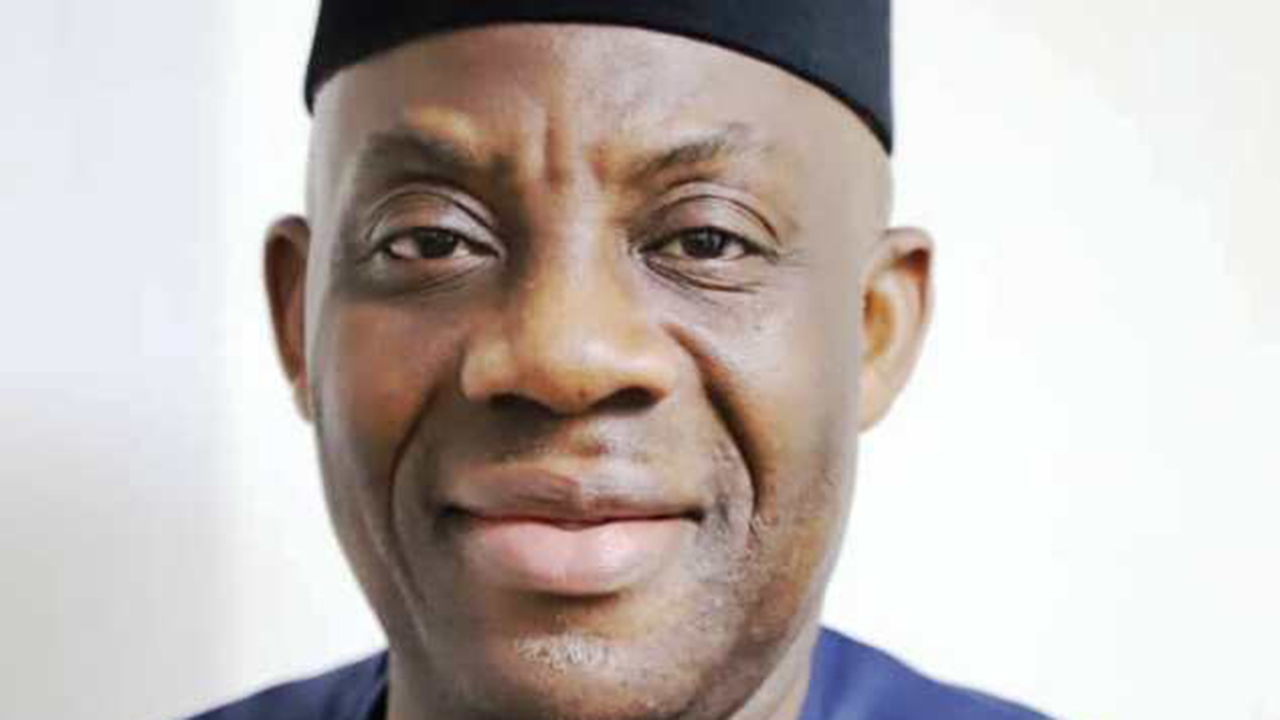 I believe this would be a difficult topic for me to discuss; even from the title, I may offend some and might be a source of asking deeper questions by some, but in all I seek the apology of anyone that felt insulted, especially those versed in the field of history or those with negative firsthand experience of the colonial era.
I believe this would be a difficult topic for me to discuss; even from the title, I may offend some and might be a source of asking deeper questions by some, but in all I seek the apology of anyone that felt insulted, especially those versed in the field of history or those with negative firsthand experience of the colonial era.
This is not an article that gives detailed happenings during the colonial era, nor an article that mongers resentment, but rather asking deeper questions about our continent, the country, and its people. It was intended to be a paradigm shift in search of the root causes for our struggle toward development 60 years after independence. This is an article seeking answers to some fundamental questions regarding the relationship between Nigerians and their colonists.
Let me first begin by asking some questions.
Why our railway system was better about 70 years ago, when it was managed by the British?
Why our pioneer political leaders, teachers, civil servants, military officers, police, and administrators trained under the British colony were the best, and since then, the quality of those aforementioned professionals has deteriorated.
Why was our golden era as a country between 1960 and 1975, exactly a decade and a half after independence, but yet we are unable to produce leaders/followers that can march us toward the dream of our forefathers?
I began formulating those questions a long time ago after I encountered books written by the impeccable historian Max Siollun. Three of Max Siollun’s books about Nigerian history, especially between 1950 and 1999, include ‘Oil, Politics, and Violence,’ ‘Soldiers of Fortune: Buhari to Babangida,’ and ‘Soldiers of Fortune: Abacha to Obasanjo’.
Max Siollun was a historian with an uncanny gift for objectivity, attention to details, and the ability to relate events as if you were present. I found his books unputdownable. He was able to relate most of the major political events that happened in Nigeria that birthed the modern state we are in; from the events prior to independence, the political rivalries of the first Republic, the coups and counter coups, the civil war, the regime from Gowon, Murtala/Obasanjo, the second Republic of Shagari, the first Buhari Era, the Babangida regime, the Abacha time, and the early part of the Obasanjo presidency.
What is unique about Max Siollun was his lack of prejudice in narrating happenings as if he was an outsider. Prejudice was common to many writers about Nigeria History, but Max was different. I found anyone that has not read his books greatly lacking about what is Nigeria.
Recently, while I was watching a BBC documentary by Jeremy Paxman about British Empire and it’s legacies especially in the countries they have colonized and the lasting impact they had on the natives culture and way of life, I began to marvel at the effect they had on our way of life both positively and negatively.
British spent over 200 years ruling India/Pakistan and left in 1947 hastily and unharmonious not even the same manner they left Nigeria. Indian population was many times larger than the Nigeria’s and more ethnically and religiously diverse with Hindus, Muslims, and Sikhs, yet today 70 years later, India was able to heal it’s wounds and march toward a brighter future taking advantage of its large population as a market size. Today they are among the top world Medical tourism site, a Haven for Information Technology, and a Haven for Entertainment, despite their challenges of poverty, overcrowding, and religious diversity.
Anybody interested in global affairs is aware of the rising echo of Kenya today In the African continent. Kenya is among the top economically viable countries in Africa despite their non Oil dependency. Their economy was not dependent on oil like ours, they were colonised by the same British, they have undergone several painful periods, but still Kenya is marching as a very safe and developing Country.
Among the key factors for Kenya’s progress was the presence of Asian/Indian people who were initially imported by the British during the colonial era and were later allowed to be assimilated as indigenes when the British left. Most of Kenya Agricultural sector was handled by those Indians up to this day.
About 15 years ago, when the Naira currency was more good and stable, many of us can remember the large number of Nigerians trooping to Kenya for studies. This portrays their level of educational standards.
History of South Africa can never be separated from their painful struggle for self independence. South Africa was a country inhabited by various groups of Europeans; from Dutch, Germans, Englishmen, and Australians, most of their lands were confiscated and the once host were turned in to beggars and slaves.
Despite such painful experiences, coupled with their long battle with the apartheid regime and fight for freedom until around the 1990s, South Africans were able to turn the pages and make good use of their mixed society to their benefit economically. Today South Africans has a fast-growing economy, sports tourism, and are politically stable. Millions of Nigerians were trooping into South Africa in search of greener pastures.
Then I began to wonder, was the difference in Nigeria’s situations due to our non-mixed society with Asians or Europeans that gave added advantages to Kenya and South Africa? Or was it due to the short period of contact we had with the British (1880-1960) compared to Indians who were colonized for over 200 years? I think the answer would be the combined factors.
Since independence, we have been trying different approaches to economic development, regime after regime, government after government. Every leader created his own path only to be abandoned when there was a change in government. We have not portrayed discipline in the execution of long-term plans (National Economic Development Plan). That vision was since abandoned with General Yakubu Gowon’s regime.
We have abandoned the industrialization policy of Sir Ahmadu Bello; the green revolution of Alh. Shagari, Operation Feed The Nation by Obasanjo; the Structural Adjustment Program (SAP) of Babangida; the War Against Indiscipline (WAI) of Buhari/Idiagbon ; the nationalization policies of Abacha. And since the return of democracy in 1999, the pattern has not changed: Obasanjo’s economic reform, Yar’adua’s 7-point Agenda, Goodluck’s Transformation Agenda (TAN), APC/Buhari’s ‘Change’ mantra, and now Tinubu’s Renewed Hope.
The problem was not with the policies in themselves, and in my personal view, it was partially not with those leaders I have listed above (personally, I saw them as very good and patriotic individuals). The problem was with all of us Nigerians, from the leaders to the followers. We have all contributed to our situation: the corrupt civil servant, the mischief marketer that hoards, the unproductive youth, the nepotistic leader, etc.
We have a very complex nature and habits that sometimes marvel. We are very religious at one extreme and a very indisciplined society at the other extreme. We preach sanity, honesty, and love, but our actions show exactly the opposite.
Having read Walter Rodney’s book on ‘How Europe underdeveloped Africa,’ I failed (and many analysts too) to see that as the sole excuse for our underdevelopment. As the popular Hausa saying goes, “Idan Bera da sata, Daddawa ma da wari.” We can’t continue shifting blames on each other and expect that would change the scenario. Countries like Pakistan, Malaysia, Iran, Ethiopia, Indonesia, India, Rwanda, Kenya, South Africa, Brazil, the Philippines, and Thailand have gone through similar problems we have faced, and still today they are in one problem or the other, but still were able to change the narratives and turn the adversities into their strengths.
Of course, I fully sympathized with the tragedy and cruelty our forefathers have gone through during slavery by the Whites, but we can’t continue to dwell on the past and expect things to change. Let’s carve our own future by God’s grace; let’s create another Asian Tigers in Africa!
I’m not denying the fact that up to today there was evidence of invisible hands playing a role in shaping many of our internal political and economic decisions (The Chatham House, the Brook Institute, etc.), but my argument was that we seem better off under the colonial administration with an effective police, educational system, judiciary, transportation system, and taxation system.
Without prejudice, I hope people would support my argument about the White Man’s nature of following orders, thinking for the benefit of his unborn grandchildren, planning ahead, and due process. This was in total contrast to our chaotic nature, love for instant gratification, and ethnic bigotry.
I’m not on a way of totally condemning our way of life, for indeed we (Africans) are good people, brave, agile, hospitable, and good-spirited. We are only in need of good direction.
On a way forward note, we need to make our economy more open, especially to Indians, Pakistanis, and Asians in a coordinated manner that would ensure benefit to us as well as them. We need to strengthen our institutions like Banks, Electoral, Police, Military, Universities, research centers, and most importantly, the judiciary.
We need to fight nepotism, ethnic and religious bigotry in order to allow meritocracy to be the order of the day in Nigeria. We need to take advantage of our large population as a market’s capital. We need to take advantage of our youth and their untapped potentials. May Allah help Nigeria to be more peaceful, prosperous, and united.
Saifullahi Attahir wrote from Federal University Dutse.
[email protected]





